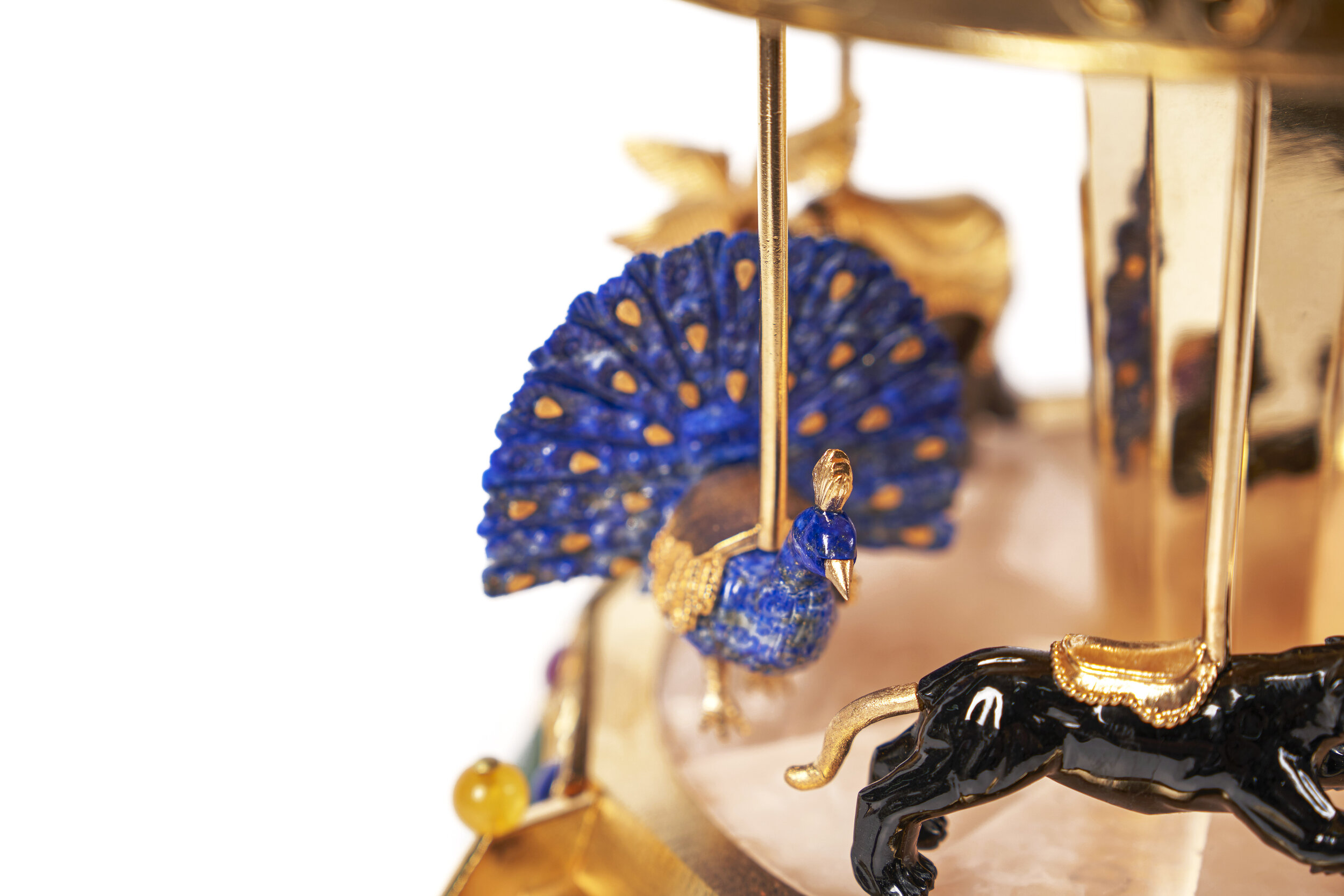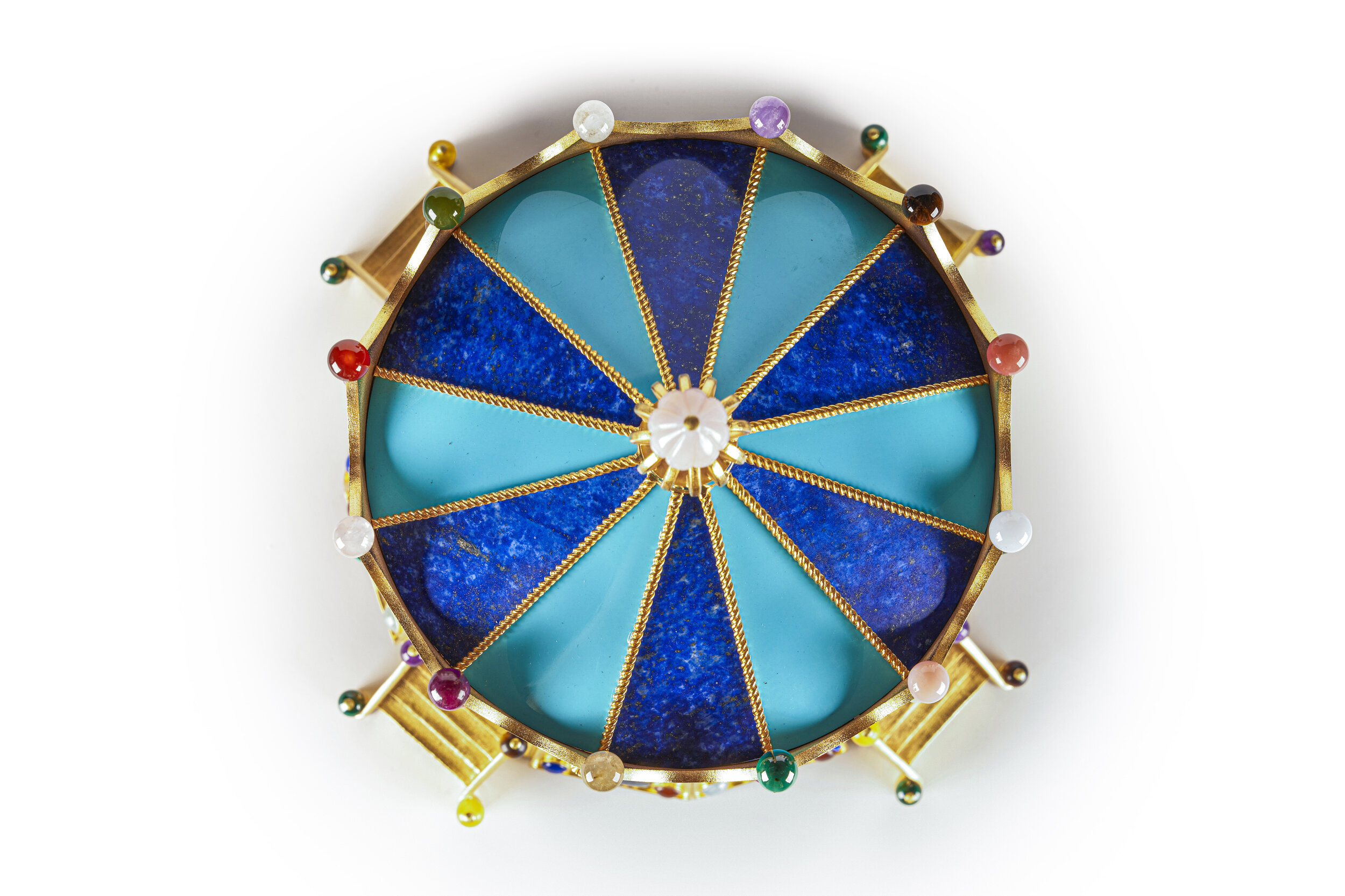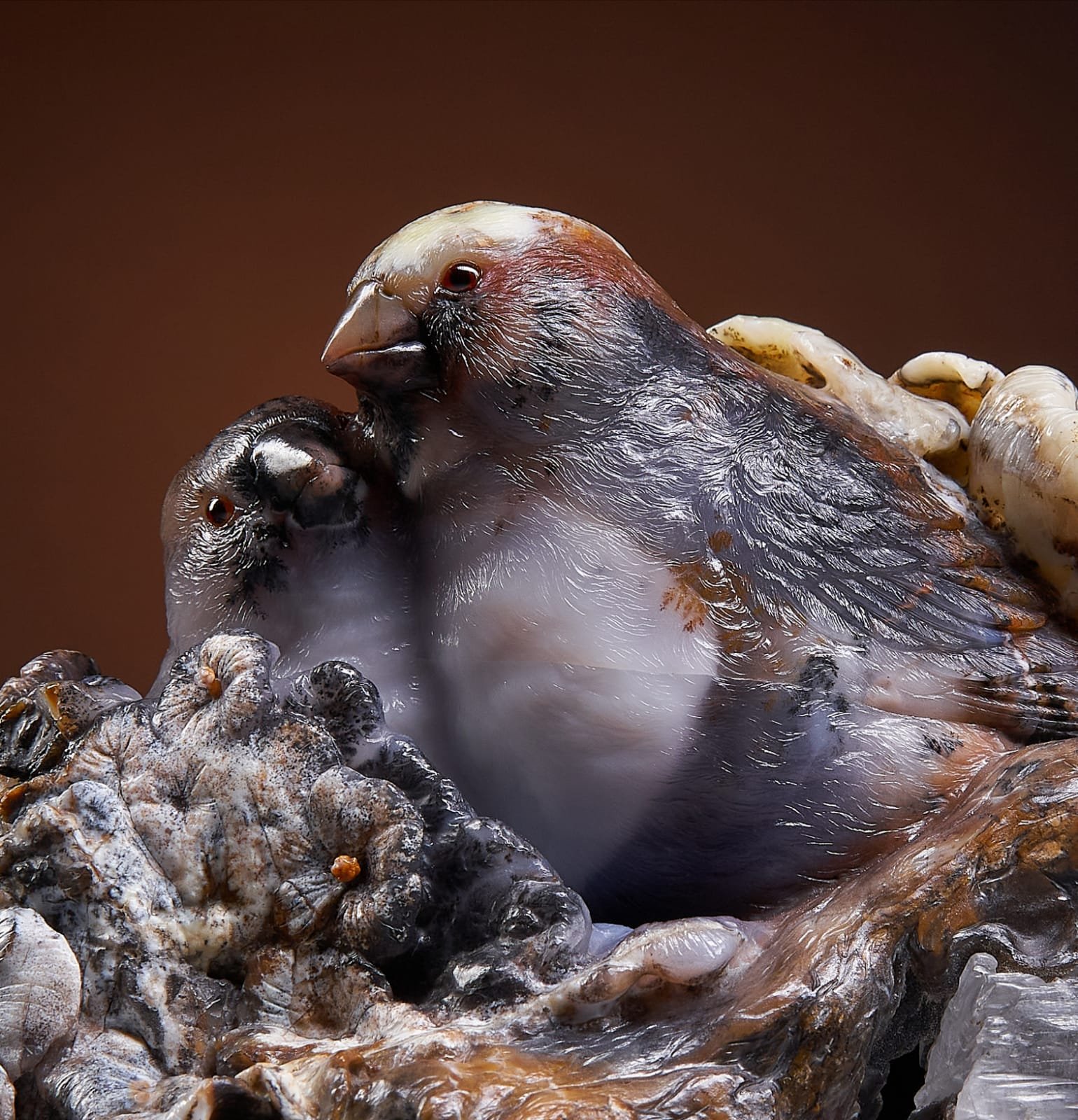 Image 1 of 6
Image 1 of 6

 Image 2 of 6
Image 2 of 6

 Image 3 of 6
Image 3 of 6

 Image 4 of 6
Image 4 of 6

 Image 5 of 6
Image 5 of 6

 Image 6 of 6
Image 6 of 6







Quartz Sculpture - Ecclesiastes
Quartz Sculpture - Ecclesiastes
The work "Ecclesiastes" refers the viewer to the image
King Solomon (the authorship of the book under the pseudonym "Ecclesiastes" is attributed to him) - the wisest man who had wealth, human happiness in his life, built a great temple and as a result wrote that all this does not matter, everything is vanity and vexation spirit ...
In the Hebrew text, the word vanity sounds like "khevel", which in the ancient Aramaic language means breath, breath, that is, that which quickly disappears, evaporates - hence the figurative meaning: empty, fruitless occupation.
Inhale - exhale ... and now there is no man, only the spirit still hovers for some time over the works of his hands ... But everything that is created by man is perishable and is subject to entropy ...
Is it worth continuing to do what we are doing?
What really makes sense?
What will remain after us?
Our cities live as long as we are alive. We are alive as long as we keep in touch with nature.
Will we have time to find a balance?
The work is made of pure transparent quartz and carved to give the impression of weightlessness of the stone, as if it would evaporate in just a moment. This is how the smoke melts, along with the illusion of the image that released this smoke of a person who is no longer ...
The metal structure that supports the stone raises it to the top of the path traveled - these are all human connections, earthly affairs, achievements. They are still strong enough to support the weight of the idea of existence, but they gradually collapse and turn into a skeleton, a skeleton, reminiscent of the armature of urban structures or power lines.
And yet, an elusive beauty is present in this pessimistic composition. The beauty of fragility, fleetingness. The beauty of being, which can only be seen through Love ...
Quartz Sculpture - Ecclesiastes
The work "Ecclesiastes" refers the viewer to the image
King Solomon (the authorship of the book under the pseudonym "Ecclesiastes" is attributed to him) - the wisest man who had wealth, human happiness in his life, built a great temple and as a result wrote that all this does not matter, everything is vanity and vexation spirit ...
In the Hebrew text, the word vanity sounds like "khevel", which in the ancient Aramaic language means breath, breath, that is, that which quickly disappears, evaporates - hence the figurative meaning: empty, fruitless occupation.
Inhale - exhale ... and now there is no man, only the spirit still hovers for some time over the works of his hands ... But everything that is created by man is perishable and is subject to entropy ...
Is it worth continuing to do what we are doing?
What really makes sense?
What will remain after us?
Our cities live as long as we are alive. We are alive as long as we keep in touch with nature.
Will we have time to find a balance?
The work is made of pure transparent quartz and carved to give the impression of weightlessness of the stone, as if it would evaporate in just a moment. This is how the smoke melts, along with the illusion of the image that released this smoke of a person who is no longer ...
The metal structure that supports the stone raises it to the top of the path traveled - these are all human connections, earthly affairs, achievements. They are still strong enough to support the weight of the idea of existence, but they gradually collapse and turn into a skeleton, a skeleton, reminiscent of the armature of urban structures or power lines.
And yet, an elusive beauty is present in this pessimistic composition. The beauty of fragility, fleetingness. The beauty of being, which can only be seen through Love ...









































